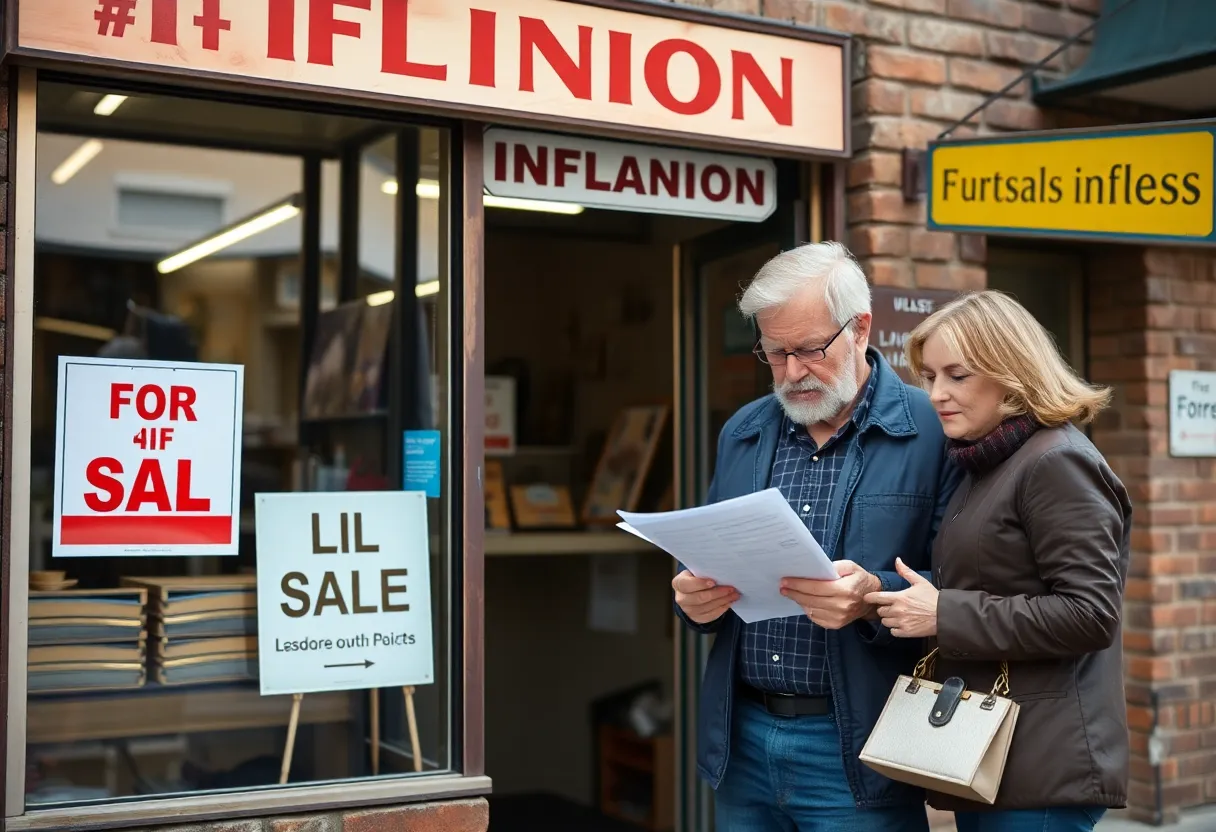News Summary
The latest NFIB report shows a significant decline in small business optimism in the US due to high inflation and regulatory concerns. For 32 months, small business sentiment has remained below the 50-year average, with many owners struggling with negative sales expectations and supply chain disruptions. Calls for policy interventions, including extending the Small Business Deduction, have emerged as business owners express low confidence in the economic landscape.
California—Ongoing high inflation and increased regulatory concerns are leading to a significant decline in small business optimism across the United States, as reported by the National Federation of Independent Business (NFIB). Their latest monthly report, the Small Business Economic Trends report, also known as the Optimism Index, reveals that small business sentiment has remained below the 50-year average for 32 consecutive months.
The NFIB’s Chief Economist points to historically high inflation as the predominant issue affecting small business owners, resulting in negative sales expectations and heightened cost pressures. Recent surveys indicate that 70 percent of small business owners report being impacted by supply chain disruptions, with varying degrees of severity from significant to mild. Furthermore, many owners are expressing a low appetite for capital investments, signaling concerns that economic activity may further decline.
As the economic landscape continues to present challenges, Tim Taylor, California Policy Director for the NFIB, emphasizes the urgency of policy actions to enhance conditions for small businesses. There are calls for Congress to pass the Main Street Tax Certainty Act, which would extend the 20% Small Business Deduction beyond its current expiration date of 2025. Additionally, there is a push for Governor Gavin Newsom to veto several bills aimed at increasing regulations on small businesses, particularly one concerning employer free speech rights.
The NFIB’s report has gained a reputation as the gold standard for assessing the health of America’s small business economy, often utilized by the Federal Reserve and various government entities. Typically, a member of the NFIB employs between one and nine individuals, with an average gross sales figure of approximately $500,000 annually.
Among the challenges facing small business owners is a growing difficulty in filling job openings, with an increase in concerns about labor quality. This tight labor market coupled with economic uncertainties is contributing to low confidence levels within the small business sector.
The Uncertainty Index remains at elevated levels, highlighting how external political factors are shaping small business sentiment and decision-making. The report underscores the dire need for immediate policy interventions to mitigate these challenges and prevent further economic downturns for small businesses.
The NFIB has championed the interests of small businesses for 80 years, reaffirming its commitment to advocate across bipartisan lines at every level of government. With small businesses being a cornerstone of the economy, the continued decline in optimism serves as a wake-up call for policymakers to address the ongoing issues faced by these vital enterprises.
In summary, the NFIB’s recent report reflects a landscape of growing concern among small business owners due to sustained inflation, regulatory pressures, and labor quality challenges. Without timely and effective policy responses, many small businesses may struggle to navigate these turbulent economic conditions.
Deeper Dive: News & Info About This Topic
- NFIB: California Comment on Latest Small Business Survey
- Inc: Small Business Optimism Slides as Tariffs Sow Uncertainty
- AOL: US Small Business Confidence Drops
- The Center Square: Small Business Sentiment Report
- NFIB: Small Business Economic Trends Report
- Wikipedia: Small Business
- Google Search: Small Business Economic Trends
- Google Scholar: Small Business Optimism
- Encyclopedia Britannica: Small Business
- Google News: Small Business Confidence

Author: STAFF HERE MISSION VIEJO WRITER
The MISSION VIEJO STAFF WRITER represents the experienced team at HEREMissionViejo.com, your go-to source for actionable local news and information in Mission Viejo, Orange County, and beyond. Specializing in "news you can use," we cover essential topics like product reviews for personal and business needs, local business directories, politics, real estate trends, neighborhood insights, and state news affecting the area—with deep expertise drawn from years of dedicated reporting and strong community input, including local press releases and business updates. We deliver top reporting on high-value events such as Oso Fit 5K Fun Run and Community Health Fair, Walk Against Drugs & Community Fair, and National Night Out. Our coverage extends to key organizations like the Mission Viejo Chamber of Commerce and Providence Mission Hospital Mission Viejo, plus leading businesses in retail and education that power the local economy such as The Shops at Mission Viejo, Capistrano Unified School District, and Amazon Delivery Station. As part of the broader HERE network, including HEREAnaheim.com, HEREBeverlyHills.com, HERECostaMesa.com, HERECoronado.com, HEREHollywood.com, HEREHuntingtonBeach.com, HERELongBeach.com, HERELosAngeles.com, HERESanDiego.com, and HERESantaAna.com, we provide comprehensive, credible insights into California's dynamic landscape.


